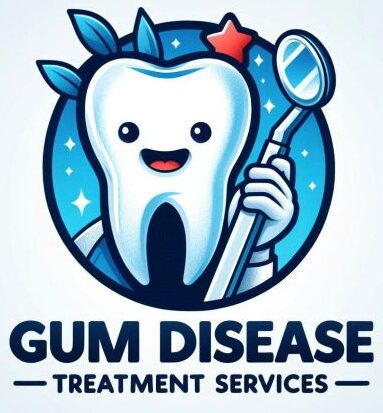Regular dental checkups go way beyond just keeping your smile looking sharp. These visits form a huge part of staying healthy overall, but so many people only visit the dentist when they feel pain or discomfort. I’ve found that understanding what’s really happening during these checkups makes it easier to keep up with appointments. This habit pays off big time in prevention and peace of mind.

Why Regular Dental Checkups Matter for Prevention of Major Dental Issues
Dental checkups are more than just a quick polish and having a dentist poke around your mouth. When I visit my dentist, I get a full inspection of my teeth, gums, and even my jaw and bite, which helps spot problems way before they get serious. Most dental issues, like cavities and gum disease, sneak up without obvious symptoms at first. Regular visits give your dentist a chance to catch those problems early, saving you from tougher treatments down the line.
Skipping dental checkups can allow problems to escalate. Cavities can grow bigger, gum disease can quietly get worse, and infections can worsen. By catching issues early, a dentist can recommend small, simple fixes like plaque scraping that are a lot easier (and usually less expensive) than waiting until problems worsen. The American Dental Association recommends visits every six months for people without major oral issues. My dental visites are every 4 months since I have periodontitis.
Regular checkups aren’t just about the teeth themselves. They also allow for a closer look at your tongue, the inside of your cheeks, and even your palate. This helps rule out worrisome spots or lumps that might otherwise go unnoticed. I’ve found that dentists are often the first to track down signs of vitamin deficiencies, oral cancers, or issues linked to overall health. This all-in-one approach to oral exams is why I’m careful not to skip my checkups, even when everything feels fine.
The Rule of 7 in Dentistry: What Does It Mean?
The “rule of 7” comes up a lot in dentistry, especially for parents with young kids. It’s a simple guideline that says, by age seven, children should have their first orthodontic evaluation. For adults, the “7” can remind you that oral health has stages; at least twice a year (roughly every 6 months) or every 7 months as a handy reminder, you should book a dental checkup.
So, whether it’s monitoring a child’s tooth development or just staying on schedule, the idea is about catching things before they snowball. Missing teeth, crowding, or bite issues show up early, so an evaluation by age 7 in kids can help prevent years of trouble later. For adults, using the “rule of 7” (or every 6-7 months) helps keep things in check before any pain shows up.
To add some additional peace of mind, getting a child checked out by age 7 allows orthodontists to spot subtle jaw or tooth problems early. This may lead to simple guidance or early intervention, so more complicated and expensive treatments are easier to avoid. Adults using the “every 7 months” memory trick can dodge late-night emergencies, simply by scheduling routine care. Both of these perspectives highlight the value in staying proactive.
What Happens During a Dental Checkup?
I used to think dental checkups were just about cleaning and counting teeth, but there’s a lot more happening behind the scenes. Here’s what usually happens at my checkup:
- Thorough Examination: My dentist examines teeth and gums for signs of cavities, plaque, tartar, or gum inflammation. They check old fillings, crowns, and even look for signs of oral cancer.
- Professional Cleaning: A dental hygienist uses special tools to remove tartar you can’t brush or floss away at home. This step keeps your gums healthy and breath fresher.
- X-rays (if needed): Every so often, X-rays help catch tooth decay or bone issues that aren’t visible to the naked eye.
- Discussion and Advice: My dentist always gives practical advice on brushing, flossing, and diet. If there’s a problem, they will recommend about next steps.
Small issues sometimes get treated right away, while bigger ones get flagged early. Preventive care is always front and center during these checkups. Many dentists will also check your bite to make sure your teeth are lining up well and that your jaw is functioning comfortably. Sometimes they’ll gently poke your gums to check for pockets—a warning sign of gum disease.
For those who have dental appliances, like a retainer or nightguard, bring it along to your appointment. Your dentist can double-check for wear or damage and clean them professionally if needed. These extra steps might not seem like much, but they add an important layer of security to your dental health.
The Power of Preventive Dental Care
Preventive dental care means stopping problems before they even start. I focus on daily brushing with a batery operated tooth brush, flossing, and using a waterpik. But professional checkups, cleanings, and occasionally fluoride treatments or sealants make a world of difference. This routine pays off in several ways:
- Saves money: Fixing a small cavity is cheaper and less stressful than waiting for it to turn into a root canal or extraction.
- Less pain and discomfort: Early treatment means less time dealing with toothaches or swollen gums.
- Boosts confidence: Clean teeth and healthy gums just make me want to smile more.
- Better overall health: Research links gum health with heart health, diabetes, and even pregnancy complications. Taking care of your mouth can actually support your whole body.
Skipping prevention is a bit like forgetting to change your car’s oil; everything might seem fine for a while, but small problems can turn into big headaches later on. A study published in the Oral Health Foundation study shows that patients who visit their dentist regularly deal with fewer and less severe dental issues over time.
When thinking about prevention, many people overlook the value of sealants and fluoride. Sealants are thin coatings applied to the grooves of teeth (mainly molars) to block out bacteria and food. Fluoride can harden enamel, which means your teeth are better protected from decay. These science-backed services are simple during a checkup and go a long way in protecting your smile.
Common Dental Issues Regular Visits Help Prevent
When making time for regular appointments, You can dodge a bunch of dental problems that could otherwise creep up slowly. Here are just a few issues regular checkups help avoid:
- Cavities: Tooth decay often starts in places you can’t see or reach. A dentist can spot and seal them off early.
- Gum Disease: Early gum disease (called gingivitis) is reversible with extra cleanings and better home routine. If left too long, it can turn into periodontitis, which can lead to tooth loss.
- Tooth Loss: Preventable through hygiene and catching structural problems before they cause teeth to loosen.
- Oral Cancer: Quick oral cancer screenings during checkups are really important, especially for adults who smoke or drink alcohol.
- Bad Breath: Persistent bad breath is usually a sign something’s going on in your mouth. Regular cleaning and professional advice help stomp this out.
Another hidden risk that regular checkups help prevent is the buildup of plaque and tartar. Even if you brush and floss every day, there are spots you’ll miss that a professional cleaning can handle easily. Left unchecked, tartar becomes a breeding ground for bacteria, which may eventually damage your enamel or gums. Early intervention makes maintaining great oral health so much easier in the long run.
How to Make the Most of Dental Checkups
I find that the more honest and prepared I am with my dentist, the more value I get from my visits. Here are a few practical tips for getting the best out of your dental appointments:
- Write down any symptoms you’ve noticed, like bleeding gums, sensitivity, or pain.
- Bring a list of your medications, as some can affect oral health.
- Ask questions about new products or changes in your oral routine.
- If you’re nervous, share your worries with your dentist; they have tricks to make things more comfortable.
Doing a bit of homework and communicating openly can make each visit way less intimidating, and often, I walk out knowing something new about how to take care of my teeth and gums better. Keeping a running note on your phone for oral health questions or minor concerns can help you remember everything you wanted to bring up during your appointment.
Also, don’t hesitate to ask for demonstrations on brushing or flossing techniques. Dental professionals are often happy to show better ways to look after your teeth, which can lead to big improvements between appointments.
Addressing Common Concerns About Dental Visits
A lot of people avoid the dentist due to fear, cost, or busy schedules. I’ve been there, and that is why I have gum disease. I know it’s easy to put checkups on the back burner. Here’s how I approach some of the big hurdles now:
- Cost: Many dental plans cover preventive appointments fully. Even if you pay out of pocket, prevention almost always saves money by dodging bigger dental bills.
- Dental Anxiety: Open up to your dentist about dental anxiety. Modern offices have ways to keep patients calm and comfortable, and dentists understand these worries are common.
- Tight Schedules: Booking appointments in advance and syncing them with other routine health visits helps keep things organized.
For those with a dental phobia, bringing a close friend or listening to calming music during the appointment can help set you at ease. Offices today often offer gentle lighting, entertainment, or even aromatherapy to help with relaxation. Tackling these obstacles head-on leads to smoother and more positive dental experiences over time.
When I look at it as part of my regular health routine, checkups feel less like a chore and more like a simple investment in myself. Framing dental care as a non-negotiable piece of self-care makes it much easier to stick with regular visits, and the long-term rewards are worth it.
Frequently Asked Questions
Why is it important to make regular visits to a dentist?
Regular visits let your dentist catch issues like cavities and gum disease early, making them much easier to treat. Dentists are really helpful for keeping your whole mouth healthy and can even spot signs of bigger health concerns.
What is the rule of 7 in dentistry?
This is a handy reminder, especially for parents. Children should have their first orthodontic checkup by age 7, and adults can use the “7 months” rule as a mental cue to schedule twice-yearly checkups.
Why is preventive dental care important?
Preventive care helps dodge future pain, tooth loss, and even major dental treatments. It keeps your oral health and body healthier and often saves money and time in the long run.
Key Takeaways
Regular dental checkups work as a powerful form of prevention. Staying on top of these appointments keeps your teeth and gums healthy, helps prevent worse problems, saves money, and supports your overall health. Making these checkups a part of your routine and pays off in more ways than one. If you haven’t had a dental checkup in a while, it’s worth booking one soon and taking that first step towards better health.
